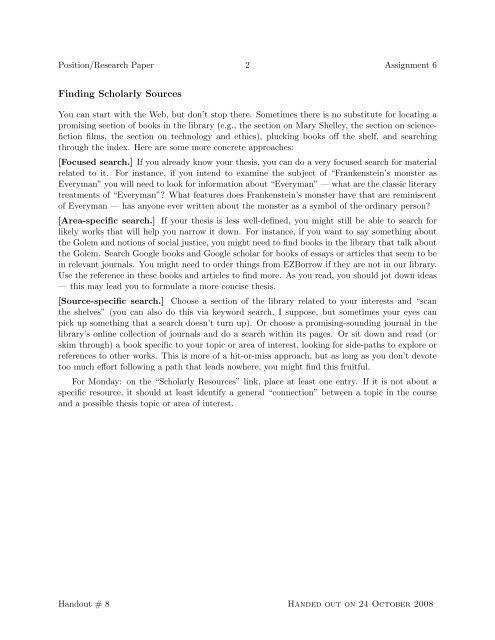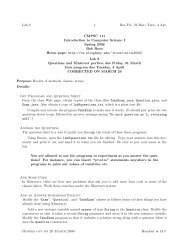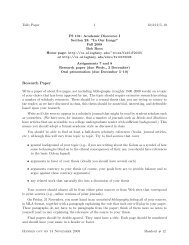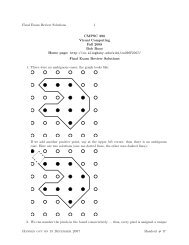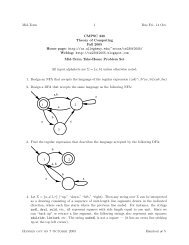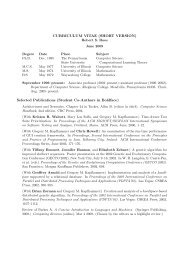Assignment 6 1 Position/Research Paper FS 101: Academic ...
Assignment 6 1 Position/Research Paper FS 101: Academic ...
Assignment 6 1 Position/Research Paper FS 101: Academic ...
You also want an ePaper? Increase the reach of your titles
YUMPU automatically turns print PDFs into web optimized ePapers that Google loves.
<strong>Position</strong>/<strong>Research</strong> <strong>Paper</strong> 2 <strong>Assignment</strong> 6<br />
Finding Scholarly Sources<br />
You can start with the Web, but don’t stop there. Sometimes there is no substitute for locating a<br />
promising section of books in the library (e.g., the section on Mary Shelley, the section on sciencefiction<br />
films, the section on technology and ethics), plucking books off the shelf, and searching<br />
through the index. Here are some more concrete approaches:<br />
[Focused search.] If you already know your thesis, you can do a very focused search for material<br />
related to it. For instance, if you intend to examine the subject of “Frankenstein’s monster as<br />
Everyman” you will need to look for information about “Everyman” — what are the classic literary<br />
treatments of “Everyman”? What features does Frankenstein’s monster have that are reminiscent<br />
of Everyman — has anyone ever written about the monster as a symbol of the ordinary person?<br />
[Area-specific search.] If your thesis is less well-defined, you might still be able to search for<br />
likely works that will help you narrow it down. For instance, if you want to say something about<br />
the Golem and notions of social justice, you might need to find books in the library that talk about<br />
the Golem. Search Google books and Google scholar for books of essays or articles that seem to be<br />
in relevant journals. You might need to order things from EZBorrow if they are not in our library.<br />
Use the reference in these books and articles to find more. As you read, you should jot down ideas<br />
— this may lead you to formulate a more concise thesis.<br />
[Source-specific search.] Choose a section of the library related to your interests and “scan<br />
the shelves” (you can also do this via keyword search, I suppose, but sometimes your eyes can<br />
pick up something that a search doesn’t turn up). Or choose a promising-sounding journal in the<br />
library’s online collection of journals and do a search within its pages. Or sit down and read (or<br />
skim through) a book specific to your topic or area of interest, looking for side-paths to explore or<br />
references to other works. This is more of a hit-or-miss approach, but as long as you don’t devote<br />
too much effort following a path that leads nowhere, you might find this fruitful.<br />
For Monday: on the “Scholarly Resources” link, place at least one entry. If it is not about a<br />
specific resource, it should at least identify a general “connection” between a topic in the course<br />
and a possible thesis topic or area of interest.<br />
Handout # 8 Handed out on 24 October 2008


